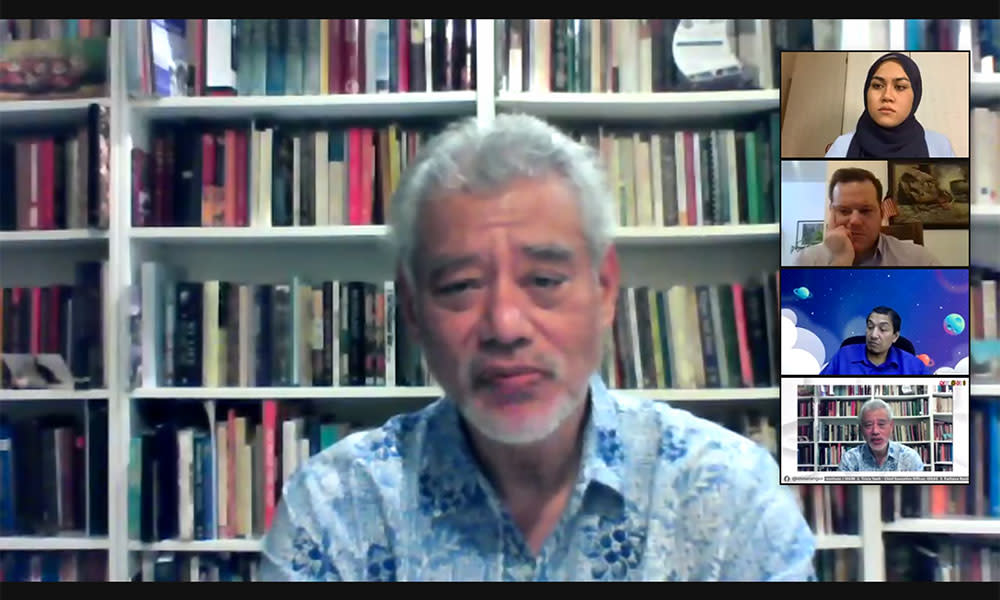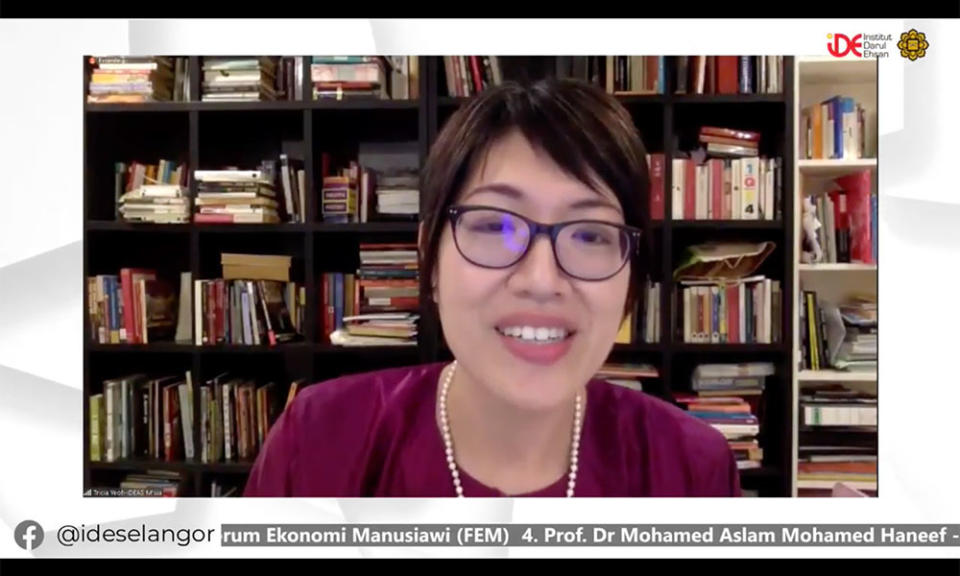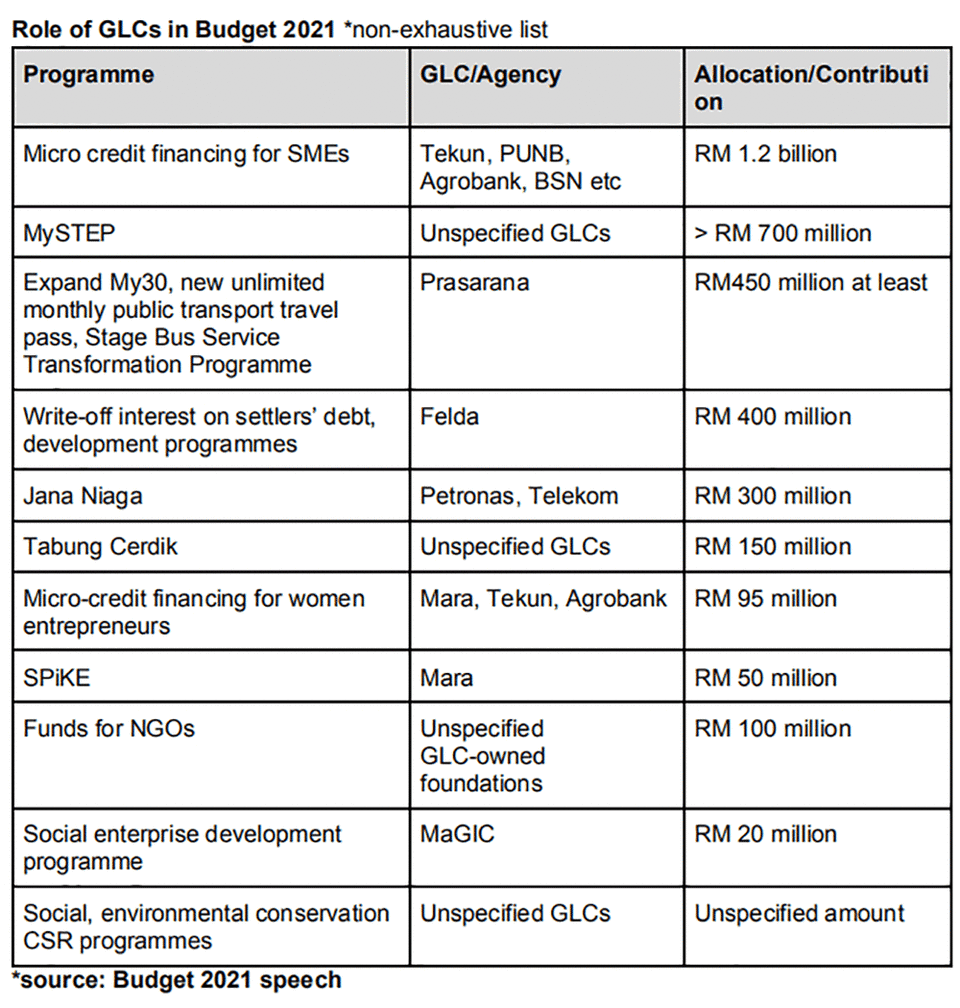Poor GLC governance can give rise to more 1MDBs, cautions Jomo

BUDGET 2021 | Economists have stressed the need to reform government-linked companies (GLCs) to ensure they are efficient and operate with sufficient checks and balances.
This is especially as such firms have been put in charge of many big-ticket Budget 2021 initiatives and tasked with creating 15,000 contract jobs next year.
In an online discussion entitled “Restructuring the Malaysian Economy” last night, Institute for Democracy and Economic Affairs (Ideas) CEO Tricia Yeoh noted the significant role GLCs have played in the domestic economy but said it was high time to re-evaluate them.
“Underperforming GLCs, which are a strain on public finances, should be abolished.
“The position we take is that the government still has a role to play and those that are performing well should remain,” she proposed.
She added that functional GLCs should be streamlined by clarifying each firm’s role in the economy and consolidating those whose functions overlap.

Preventing another 1MDB
In the interest of public accountability, Yeoh proposed that the salaries of all GLC chairpersons and board members be made public.
Such transparency was crucial, especially in the Perikatan Nasional administration when almost every backbencher helmed a GLC.

“We know that the board of directors don’t provide robust oversight, there are still a lot of political appointments to the boards and chairs [...]
“That is problematic because when they are made the heads of GLCs, they are making decisions on behalf of the entire commercial entity. Sometimes there is a conflict of interest there, and they might not be using the GLCs for the right purposes,” she said.
Despite being the recipient of public funds, GLCs are not compelled to publish publicly available annual reports.
GLCs and government agencies like 1Malaysia Development Bhd (1MDB), Majlis Amanah Rakyat (Mara), Federal Land Development Authority (Felda) and Lembaga Tabung Haji have been embroiled in financial scandals in recent years.

During the discussion, Khazanah Research Institute research advisor Jomo Kwame Sundaram expressed concern that the government’s move to allocate large sums to politician-helmed GLCs risked giving rise to more scandals.
“‘Having politicians appointed as the chairs of all the GLCs and now asking them to do anything you want as long as you can create jobs. What is likely to happen? [...]
“The very poor governance which Yeoh was talking about has been becoming far worse and will become even worse with the mandate which has been given.
“I think instead of the country improving after the 1MDB fiasco, we are now creating the conditions for many 1MDBs,” he cautioned.

Artificially created jobs?
During last Friday’s budget speech, Finance Minister Tengku Zafrul Tengku Abdul Aziz said that GLCs had been roped in to offer short-term employment under the RM700 million MyStep programme.
Yeoh questioned what type of contract jobs these would be as such firms were not known to be major job hubs.
Despite dominating a large chunk of Bursa Malaysia (36 percent) and the KL Composite Index (54 percent), she pointed to a 2013 Khazanah study that showed GLCs contributed just five percent of the national workforce.
“If we were to make those jobs available and create artificial jobs that aren’t actually real jobs, then the problem is in the long term, what is going to happen to people employed in artificially created jobs?
“Are they going to feel that they are truly contributing?
“Or are they going to be left to languish in cold storage positions rather than truly contributing value to GLCs and the government?” Yeoh asked.
The government has yet to disclose details of its job creation plans. Aside from GLCs, the public sector has been tasked with creating 35,000 jobs next year.
The discussion also featured Refsa visiting researcher Farhana Roslan, Setiawangsa MP Nik Nazmi Nik Ahmad, Umno information chief Shahril Sufian Hamdan, senator Ismail Yusop as well as academics Saadiah Mohamad and Mohamad Aslam Mohamed Haneef.
RTM host Sayed Munawar Sayed Mustar served as the moderator.
Selangor government-owned Institut Darul Ehsan organised the discussion in partnership with the International Islamic University Malaysia.


